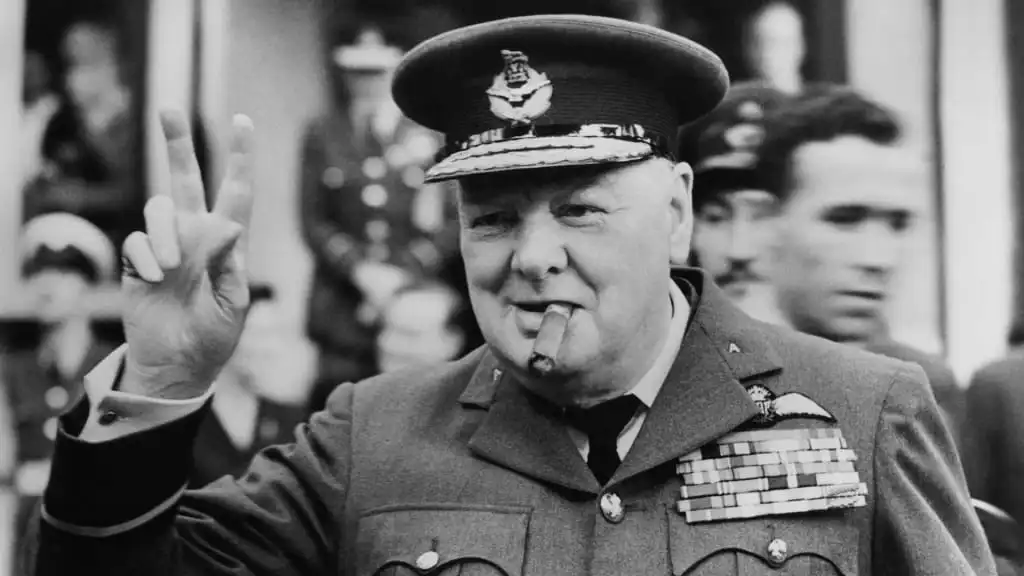This is a story about Sir Winston Churchill, emotional intelligence, and a simple way to become more persuasive. It’s especially timely because of the time of year:
- We’ve just passed the anniversary of Churchill’s “blood, toil, tears, and sweat” speech, as he became prime minister of the United Kingdom, leading the nation against the Nazis.
- Next month, we’ll mark the anniversary of his “fight them on the beaches” speech, in which he sought to convince his countrymen that the war was not lost.
- Soon after that, we’ll hit the anniversary of yet another epic speech, the “finest hour” addressin which he urged Britain to fight on alone, even after the French had surrendered.
If you’ve studied the history of World War II (or maybe if you just saw the movie, Dunkirk) you might remember: this was truly the most dangerous era of the war for the United Kingdom. Churchill’s back-to-back-to-back national addresses were important factors in persuading the country to be resilient and continue to fight.
What made him so persuasive? Two reasons, both of which you can copy and use when you need to be persuasive in your business:
- Emotional intelligence, and
- Poetry.
“It’s true, and it’s one of the reasons he was such a great speaker,” Timothy Riley, director and chief curator of the National Churchill Museum, told me when I called this week to verify my thesis, adding: “Churchill didn’t use words. He wielded them.”
Hearing vs. feeling
Let’s start with emotional intelligence. Churchill understood that you can leverage emotions – yours and other people’s – in order to achieve your goals (which just so happens to be my favorite explanation of what emotional intelligence is really all about).
He understood that whether we realize it or not, communication happens on many levels, among them: (a) the message you intend to give, (b) the message the audience hears, and (c) the emotional message they take away.
If you’ve ever gathered your team for a big announcement – good news or bad news – and watched afterward as they walked away feeling the exact opposite of what you expected they’d feel, you’ve seen this in action.
So, if leveraging emotions and passion was one of Churchill’s goals, how did he manage to stay in control, even with an audience of many millions? This is where the poetry comes in.

Poetry vs. prose
Most people wouldn’t have known this at the time, but in the decades afterward, as historians studied the drafts of many of his speeches, they realized that Churchill often didn’t write his addresses in prose, with long paragraphs and traditional grammar (much like like most of this article is written).
Instead, his drafts often looked like poetry: with short lines, broken text, and single words or phrases on their own lines, for emphasis.
Like this.
Actually, we can do better than that. For one thing, you can look at his drafts on the website, for example, of the International Churchill Society. Or for simplicity’s sake, we can recreate part of one of them here, from the “finest hour” speech I mentoned at the start.
Here’s how it looked on the page, more or less, as Churchill gave the speech:
The whole fury and might of the enemy
must very soon be turned on us.Hitler knows that he will [have] to break
us in this island, or lose the war.If we can stand up to him,
all Europe may be freed.
and the life of the world
may move forward into [the]
broad and sunlit uplands.But if we fail,
then the whole world,
including the United States,
including all that we have known and cared for,
will sing into the abyss of a new Dark Age …
I don’t know about you, but I can feel the emotional impact – the passion of the words – right there on the screen, even without hearing them. But, we can go one further, since you can hear the speech as Churchill gave it, via the recording below (the passage above starts at about 4:01).
Emotional intelligence
Look, there’s a temptation to say something here like: Of course, you don’t necessarily want to rehearse every line of every speech, and write them all out as if they were poetry.
Except that, since the time I first heard of this Churchillian habit, I’ve done it myself multiple times, and to great effect.
- I followed his lead when my grandmother died, when I was in my mid-20s, and I was asked to give a eulogy; I’m not sure I could have gotten through it coherently otherwise.
- I used it when I was practicing law and arguing cases before appellate courts for the US Army; I was much less nervous for my first cases after I’d practiced and prepared each line and wrote it as poetry, like Churchill did.
- And, I used it when I started giving speeches and keynote addresses after publishing my first books; it made me feel as if I was in control of what I had to say, and also (critically) of how I wanted my audience to feel about it.
Now, did Churchill ever describe himself as being a person with high emotional intelligence? I highly doubt it, not least because the phrase, “emotional intelligence” wasn’t even coined until a year or so before his death.
But as I write in my free ebook, 9 Smart Habits of People With Very High Emotional Intelligence, it doesn’t really matter what you call this phenomenon.
If doing something as simple as learning to write your prose so that it looks like poetry can help you become more persuasive, I think it’s worth the effort.
And I think you will, too.
Source: Inc.Africa




















